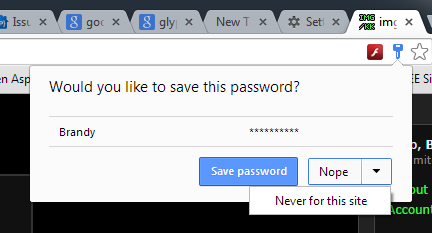Google Updates Chrome To Version 37 With DirectWrite Support
by Brandon Chester on August 26, 2014 11:00 AM EST- Posted in
- Google Chrome

Today Google updated the stable version of their Chrome browser to version 37.0.2062.94 on Windows, OS X, and Linux. This is a highly anticipated release for users on Windows specifically, as it marks the move from Microsoft's Graphics Device Interface rendering method to Microsoft's DirectWrite text rendering API. Using GDI resulted in significantly worse text rendering in Chrome compared to other browsers like Internet Explorer and Mozilla Firefox. The issue was also non-existent on Google's versions of Chrome for OS X and Linux which use font renderers native to their own operating systems. Switching to DirectWrite has been requested for years by users on Windows, and Google has stated that it took significant rewriting of their font rendering engine which is why it has taken so long.
The issue was more pronounced in some areas than others. Below we have a screenshot of a section of my own website which has always had significant issues with font rendering in Chrome. Somewhat funny is the fact that the fonts used are sourced from Google fonts.
Chrome 36 on the left, Chrome 37 on the right
The aliasing in the font rendered on Chrome 36 is quite apparent. Some letters even have entire areas that appear to be chopped off, like the top and bottom of the letter 'O'. On Chrome 37 the rendering is significantly improved. There's far less aliasing on fonts, no missing chunks from letters, and even the double down arrow glyph inside the circle looks much sharper.
While Google didn't detail it in their changelog, Chrome 37 also includes the new password manager interface that existed on the beta for Chrome 37. When on the login page for a website, a key will appear in the search bar with a list of all saved passwords for that website. This also replaces the bar that would appear at the top asking to save a username and password after entering it for the first time.
Google's changelog also states that Chrome 37 has a number of new APIs for apps and extensions, as well as many under the hood changes for improved performance and stability. There are also 50 security fixes, with the most interesting or significant fixes detailed in the source below.
Source: Google Chrome Blog












35 Comments
View All Comments
blackmagnum - Tuesday, August 26, 2014 - link
Seems like Chrome has become lazy and lagging behind its competitors in many areas.mmrezaie - Tuesday, August 26, 2014 - link
How? I am using it on Mac and Linux, and I have no other alternative that is even remotely better than it. Although I prefer a more trustworthy distributer of chromium and not get the compiled form from Google directly. Firefox is getting far behind. opera was never there for me. Safari is limited to Mac OS.inighthawki - Tuesday, August 26, 2014 - link
Both FireFox and IE have had DirectWrite font rendering for ages. And I don't know about IE, but Firefox has also had a password manager interface like the one above for as long as I can remember.Alexey291 - Tuesday, August 26, 2014 - link
that's nice when you're using windoze. What if you're not?inighthawki - Tuesday, August 26, 2014 - link
Then I'm sorry that your platform doesn't have a technology like DirectWrite to actually take advantage of, and thus can't be as good?I'm not sure what you're looking for in an answer here. Windows is the vast majority of the PC browser marketshare, so when you compare the "quality" of browsers, most people don't care if Firefox sucks on Linux compared to Chrome on Windows, because that's not what the overwhelming majority of users use.
damianrobertjones - Friday, August 29, 2014 - link
You might need to check your keyboard as it's 'windows'Alexvrb - Tuesday, August 26, 2014 - link
Well you know since the article was about the Windows version of Chrome, it seemed pretty apparent that the OP was commenting on the Windows version of Chrome.WinterCharm - Thursday, August 28, 2014 - link
On OS X Chrome is horrible at power management. I only use it for flash content because it's a leech that sucks battery.erple2 - Saturday, August 30, 2014 - link
I have found that it's not necessarily Chrome, but with enough tabs open, the dGPU kicks on instead. Apple claims it is because chrome tries to do more webgl than it should, but I'm not sure I buy it (yet). I don't seem to have that problem with safari or Firefox.B3an - Tuesday, August 26, 2014 - link
Chrome has always been behind in many areas. Part of the problem is because it still supports the ancient Win XP, so does not make use of newer features and API's in Win7/8.x.IE11 actually gets many of the basic things right - great GPU acceleration, unrivalled smooth scrolling with touch, and good font rendering. But sadly it doesn't have enough user features or addon support for me to use it.